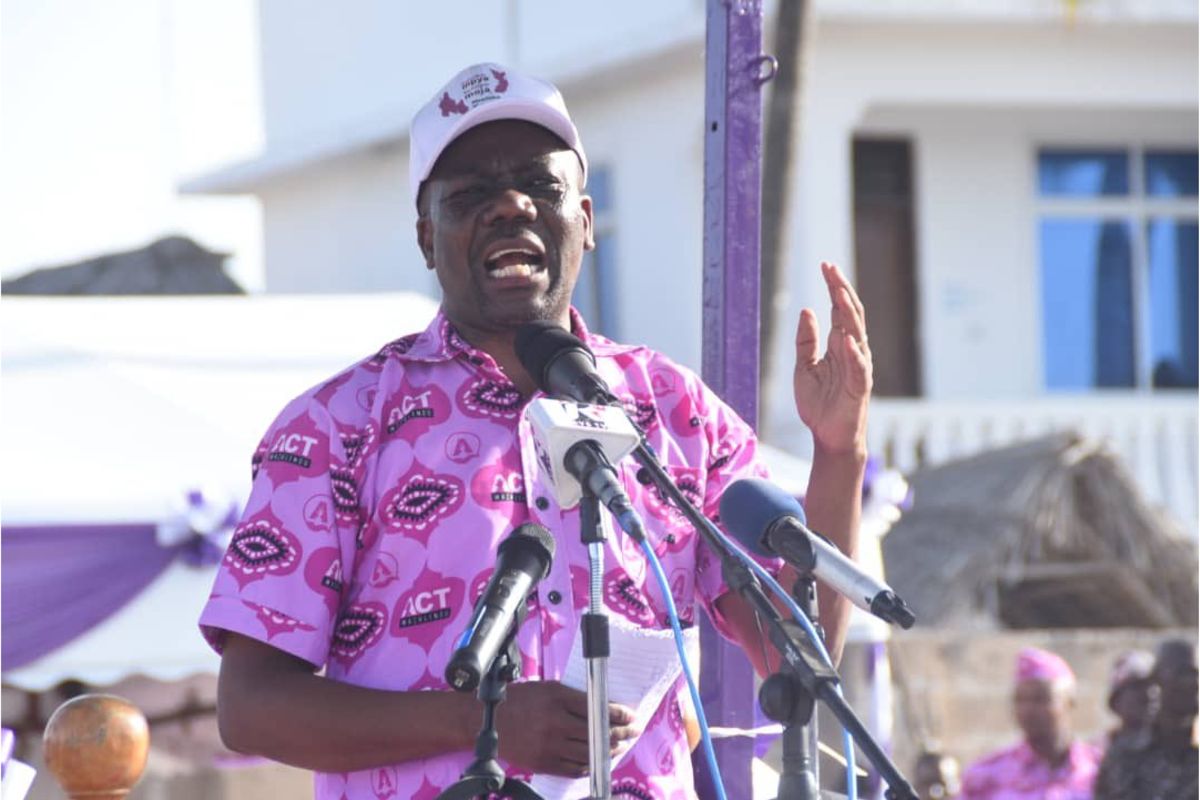The government has unveiled investment opportunities in the tourism industry to the visiting global travel agents as it seeks to unleash the industry’s full potential.
The bustling city of Arusha on Thursday played host to an influential gathering of global travel agents and local tour operators, setting the stage for potential future collaborations aimed at boosting Tanzania’s burgeoning tourism industry.
The high-profile Business-to-Business (B2B) event saw the presence of the Deputy Conservation Commissioner in the Research and Training section of the Ministry of Natural Resources and Tourism, Mr Iman Nkuwi, who outlined lucrative investment opportunities in the country’s tourism industry.
In his presentation, Mr Nkuwi emphasised that Tanzania welcomes large-scale investors willing to contribute to the development of state-of-the-art recreation facilities.
Highlighting specific investment avenues, he mentioned the establishment of wildlife captive facilities, luxury lodges and camps, beekeeping ventures, forestry projects and the rapidly growing Meetings, Incentives, Conferences and Exhibitions (MICE) ultra facility as key areas of focus.
“We have earmarked a total of 179 investment sites for accommodation facilities with the capacity to add an extra 7,744 beds,” Mr Nkuwi announced.
His statement underscored the significant potential for expansion in Tanzania’s hospitality segment, which is seen as pivotal to cater to the increasing influx of tourists drawn to the nation’s rich biodiversity and unique cultural heritage.
The strategic locations of these investment sites, coupled with the government’s supportive policies, present a golden opportunity for global investors to tap into Tanzania’s thriving tourism industry.
Mr Nkuwi’s insights further revealed that Tanzania’s vast and diverse ecosystems, ranging from the Serengeti plains to the majestic Mount Kilimanjaro, offer unparalleled experiences to visitors, thereby driving the demand for high-quality accommodation and recreational facilities.
Mr Nkuwi reiterated the government’s commitment to facilitating and fostering an investor-friendly environment. With 179 earmarked sites ready for development, Tanzania’s tourism industry stands on the brink of a transformative era, offering promising returns for discerning investors who align with the country’s vision for sustainable and inclusive growth.
Key stakeholders at the event expressed their optimism and willingness to explore these investment opportunities. Turkey Travel Agent who serves as the Vice-President of the Istanbul Tourism Association (ISTA), Mr Murtaza Kalender, said he has fallen in love with the investment opportunities in the hospitality industry.
“We would otherwise not know that there is a huge potential for investment in the hospitality industry, without this special presentation to us. Tanzania is now my second home. I will internalise on the opportunity,” Mr Murtaza noted. He said Tanzania has what it takes to woo 15 million tourists in the next decade, if the current efforts to engage global travel agents are sustained.
“Collaboration between international travel agents and local tour operators is expected to not only bolster the tourism infrastructure but also enhance the overall visitor experience, thus contributing significantly to Tanzania’s economic growth” Mr Murtaza noted.
The B2B event in Arusha marked a significant milestone in Tanzania’s journey towards establishing itself as a premier global tourist destination.
As the dialogues initiated during this gathering evolve into concrete partnerships, the future of Tanzania’s tourism subsector looks indeed bright, brimming with endless possibilities for both investors and travellers alike.
In a landmark initiative aimed at bolstering Tanzania’s tourism industry, 120 global travel agents have embarked on an exclusive familiarisation tour in the northern tourism circuit to experience the natural beauty firsthand.
The brainchild behind this ambitious project, African Queen Adventures CEO, Alice Manupa, shared that the tour was aimed at offering the global agents a firsthand experience of Tanzania’s unparalled natural beauty and rich cultural heritage.
“This is a milestone for the Tanzania tourism industry,” Ms Manupa said, adding: “Considering that 60 per cent of global travel and tourism decisions are influenced by travel agents, hosting 120 of the world’s most influential agents is bound to skyrocket our destination profile and visibility.”
Source: allafrica.com















